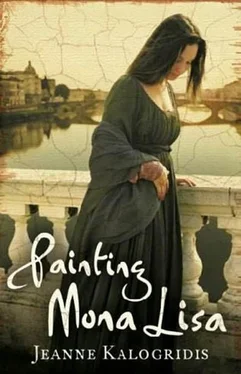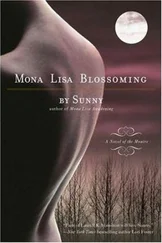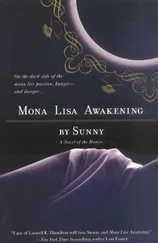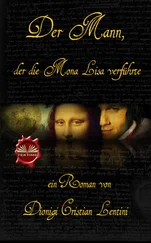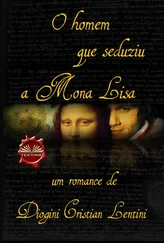… continue to encourage him to preach against Rome and the Arrabbiati.
I thought of Francesco faithfully attending Savonarola’s every sermon. Listening carefully to every word. Coming home to his lavish palace and spoiling me with jewels. Riding out each night to visit his harlots.
… willing to deal with him as you did with Pico.
I thought of Pico with the goblet in his hands, smiling at Lorenzo; of Pico, hollow-eyed and gaunt. Of Francesco saying softly, Pico…? He was an associate of Lorenzo’s, was he not? Alas… he is not expected to survive much longer .
I had thought the greatest danger to myself, my father, was for Francesco simply to open his mouth, to reveal my connection to the Medici. To speak.
It would be a terrible thing for your father to undergo any more suffering. A terrible thing, if he were to die.
I thought I had understood my husband. I understood nothing.
The world was hot and heavy and stifling. I put my head upon my knees, but couldn’t catch my breath to cry.
My body opened up; I heard the splash of liquid and realized that I was the source. My chair, my legs, my gown were all soaked, and when I stood, startled, a cramp seized me so violently I thought I was turning inside out.
I cried out and seized the balcony’s edge, and when Zalumma, wide-eyed and gasping, appeared, I told her to bring the midwife.
F rancesco named the boy Matteo Massimo: Massimo, after Francesco’s father, and Matteo, after his grandfather. I accepted the patriarchial naming dutifully; I had always known I could not name him Giuliano. And I was pleased to learn that Matteo meant “gift of God.” God could have given me none better.
Matteo was amazing and beautiful, and gave me back my heart. Without him, I could not have borne what I had learned in my husband’s study; without him, I had no reason to be courageous. But for his sake, I kept my counsel, and told only Zalumma of the letter-a necessity, since she would notice the key I had kept, and which Francesco never mentioned.
When I recited the line about Pico, she understood at once and crossed herself in fear.
Matteo was baptized the day after his birth, at San Giovanni, where I had been married for the second time. The formal christening was held two weeks after, at Santissima Annunziata, some distance to the north in the neighboring district of San Giovanni. For many generations, Francesco’s family had maintained a private chapel there. The church stood on one side of the piazza with the orphanage, the Ospedale della Santa Maria degli Innocenti, opposite. The gracefully arching colonnades of the buildings-each bearing Michelozzo’s stamp-faced the street.
I found the chapel comforting. Save for the bronze crucifix of an anguished Christ, whitewashed walls rose bare above an altar carved from dark wood, braced on either side by two iron candelabra as tall and twice as broad as I. The blond glow from twenty-four candles fought to ease the windowless gloom. The room smelled of dust, of wood and stone, of sweet incense and candlewax, and echoed silently with centuries of murmured prayers.
Since my son’s birth, I had kept my distance from Francesco; my hatred, my disgust, my fear, were so great I could scarcely bring myself to look at him. His manner remained unchanged-solicitous and mild-but now, when I studied him, I saw a man capable of Pico’s murder and perhaps Lorenzo’s. I saw a man who had helped to oust Piero, and thus brought about my Giuliano’s death.
I had tried to let my maternal devotion obliterate any consideration of my husband’s dark dealings with Savonarola, as if forgetfulness could magically protect Matteo from them. I had tried-but as I sat in the chapel and beamed at my child, the knowledge that Francesco sat beside me sickened me.
Uncle Lauro and Giovanna Maria served as godparents. Matteo was an impossibly content child; he slept through most of the ceremony, and when he woke, he smiled. I sat, still weary after the long labor, and watched with joy as my father held the baby and Lauro answered for him.
Afterward, as my father proudly bore his grandchild down the aisle and the others followed, I paused to take Matteo’s certificate from the priest. He was young and nervous; his voice had cracked several times during the ceremony. When I took hold of the certificate, he did not let go, but glanced surreptitiously at the others; when he reassured himself they were preoccupied with the baby, he hissed at me:
“At night. Read this only at night-tonight, when you are alone.”
I recoiled… then looked down at my hands. He had given me more than the single piece of parchment; beneath it he had tucked a piece of paper, neatly folded.
Thinking he was mad, I walked swiftly away from him and hurried after the others.
Outside, in the piazza, I had almost joined up with them when a young monk stepped into my path. He wore the black robes of the Servants of Mary, the monastic order whose convent was housed there, at Santissima Annunziata. His cowl had been raised, leaving his brow and eyes in shadow; over his arm was a large basket filled with eggs. As I swept by him, he said, in a low voice, “A beautiful child, Monna.”
I turned back to smile. And found myself looking at the familiar smirk of the Devil himself.
“You,” I whispered.
The recognition pleased him. He leaned into the light, which revealed amusement in his eyes-tempered by anxiety that my husband might notice. “Tonight,” he said softly. “Alone.” Then he turned and walked briskly on.
As I joined the others, who were talking and fawning over Matteo before Francesco returned to work at his bottega, my husband looked up from his presumed son, his gaze gentle, absent. “Who was that?” he asked.
“No one,” I said, moving to join him. I held the certificate tightly in my hand, making sure it entirely covered the smuggled note. “No one at all.”
I told no one about the note-not even Zalumma. But after she went downstairs at noon to eat with the other servants and left me alone with Matteo on my balcony, I unfolded the piece of paper. The sun was overhead in a cloudless sky, but I could not wait-nor did I see any reason to. Matteo lay, warm and soft, against me. Dared I become embroiled in more deceit?
When I stared at the paper, I let go a sound of disgust. It was blank, utterly blank. The Devil had played a joke-and a poor one, at that. Had the hearth been lit, I would have thrown it into the fire. But I curbed my temper, smoothed out the creases, and put it in a drawer. I intended to use it for correspondence, since it was of fine quality, neatly cut and bleached white.
Late that night, the sound of Matteo’s wailing in the distant nursery woke me; it stopped quickly once the wet nurse rose to feed him, but I could not return to sleep. The air was unseasonably warm; I lay sweating on my bed and fidgeted restlessly while Zalumma slept on her cot.
The words of the priest returned to me: Read this only at night-tonight, when you are alone.
I rose. In the darkness, I moved with deliberation and care, despite the fact that Zalumma was difficult to wake. I lit a candle, opened the drawer beside my bed very slowly, and retrieved the paper given me by the priest.
Feeling both foolish and frightened, I held it up to the flame.
I stared into the white blankness and frowned-until inspiration struck. I brought the paper closer to the heat, so close that the flame flared toward it and began to darkly smoke.
Before my eyes, letters began to appear, transparent and watery brown. I drew in a silent, startled breath.
Greetings.
I regret I could not respond to your earlier letter.
Читать дальше
Конец ознакомительного отрывка
Купить книгу
